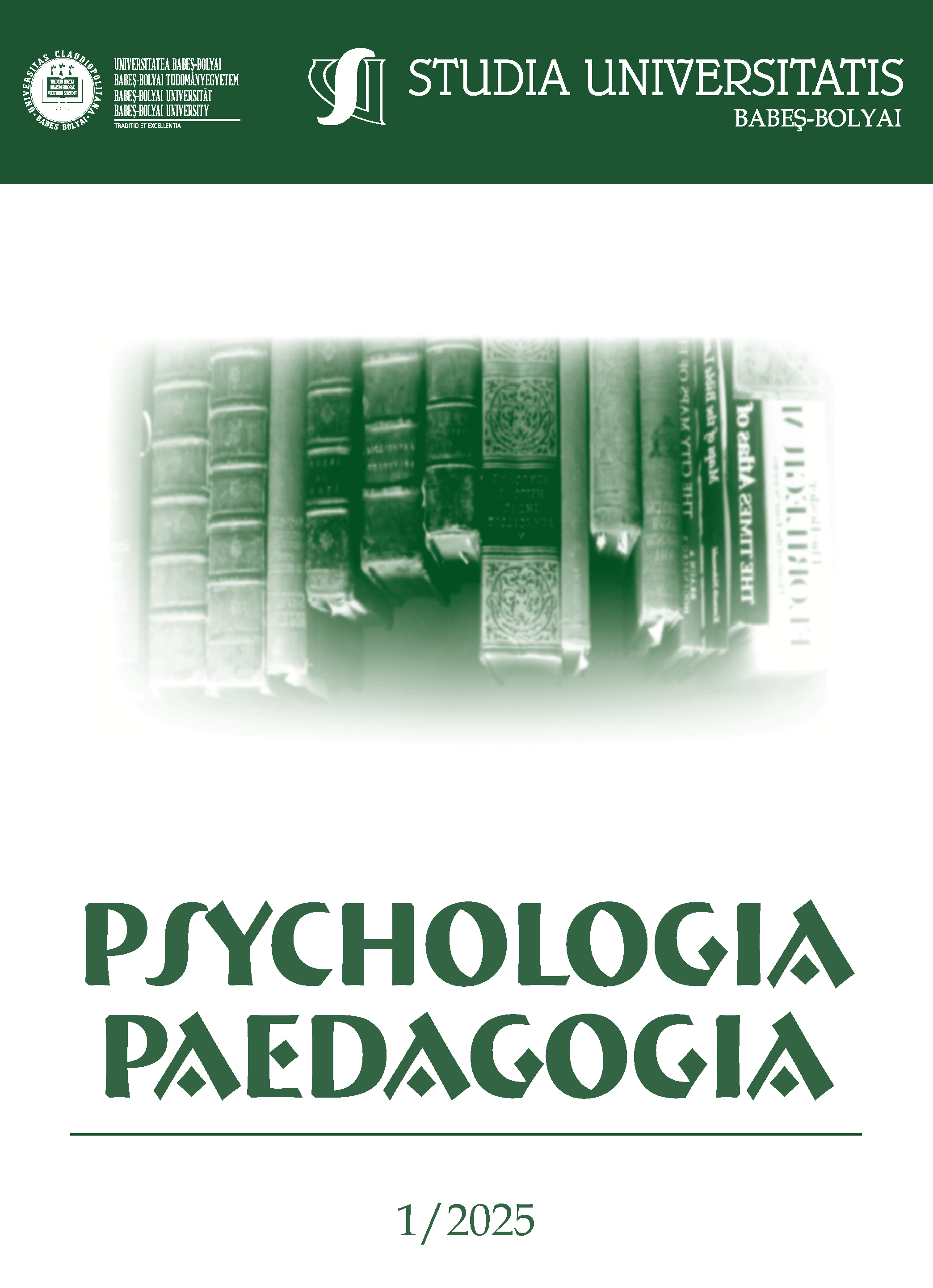A Structured and Comparative Analysis of Personal Values Theories
DOI:
https://doi.org/10.24193/subbpsyped.2025.1.09Keywords:
review, personal values, theory, value theory, identityAbstract
The present synthesis of current personal values theories is a way to structure the relevant models and their validation studies, if they have any. The aim of the paper is to identify the stage of validation of these theories. Each one is described, their validation studies for the scales are presented, where applicable and prudent interpretation of differences is made. The present synthesis of current personal values theories is a way to structure the relevant models and their validation studies, if they have any. The aim of the paper is to identify the stage of validation of these theories. Each one is described, their validation studies for the scales are presented, where applicable and prudent interpretation of differences is made. The review presents the different frameworks used mainly for research and those used for therapy. When it comes to analysing human behaviour, decision-making, and social interaction, having a clear and correct understanding of personal values is completely essential. The purpose is to investigate important theories of personal values, with a particular emphasis on the differences between them. The research illustrates the main characteristics of these frameworks across a variety of situations by conducting a comparative analysis of these frameworks’ comparative analysis. The aim of this review is to evaluate the validity and criticism of these theories by analysing empirical research. We also provide insights into potential future research paths and practical ramifications in the areas of social policy and human development.
References
1. Rokeach, M. (1973). The nature of human values. Free press.
2. Rokeach, M. (1979). Value theory and communication research: Review and commentary. Annals of the International Communication Association, 3(1), 7-28.
3. Zhao, J., He, N., & Lovrich, N. P. (1998). Individual value preferences among American police officers: The Rokeach theory of human values revisited. Policing: An International Journal of Police Strategies & Management, 21(1), 22-37.
4. Braithwaite, V. A., & Law, H. G. (1985). Structure of human values: Testing the adequacy of the Rokeach Value Survey. Journal of personality and social psychology, 49(1), 250.
5. Schwartz, S. H. (1992). Universals in the content and structure of values: Theoretical advances and empirical tests in 20 countries. Advances in Experimental Social Psychology, 25, 1–65.
6. Schwartz, S. H., et al. (2012). Refining the theory of basic individual values. Journal of Personality and Social Psychology, 103(4), 663–688.
7. Schwartz, S. H., & Boehnke, K. (2004). Evaluating the structure of human values with confirmatory factor analysis. Journal of research in personality, 38(3), 230-255.
8. Inglehart, R. (1981). Post-materialism in an environment of insecurity. American Political Science Review, 75(4), 880–900.
9. Inglehart, R., Basanez, M., Diez-Medrano, J., Halman, L., & Luijkx, R. (2000). World values surveys and European values surveys, 1981-1984, 1990-1993, and 1995-1997. Ann Arbor-Michigan, Institute for Social Research, ICPSR version.
10. Lakatos, Z. (2015). Traditional values and the Inglehart constructs. Public Opinion Quarterly, 79(S1), 291-324.
11. Tausch, A. (2015). Hofstede, Inglehart and beyond. New directions in empirical global value research. New Directions in Empirical Global Value Research (May 14, 2015).
12. Deci, E. L., & Ryan, R. M. (2000). The “what” and “why” of goal pursuits: Human needs and the self-determination of behavior. Psychological Inquiry, 11(4), 227–268.
13. Schwartz, S. H., & Bilsky, W. (1987). Toward a universal psychological structure of human values. Journal of personality and social psychology, 53(3), 550.
14. Bardi, A., & Schwartz, S. H. (2003). Values and behavior: Strength and structure of relations. Personality and social psychology bulletin, 29(10), 1207-1220.
15. Kirschenbaum, H., Harmin, M., Howe, L., & Simon, S. B. (1977). In defense of values clarification. The Phi Delta Kappan, 58(10), 743-746.
16. Haidt, J., & Joseph, C. (2004). Intuitive ethics: How Innately prepared intuitions generate culturally variable virtues. Daedalus, 133(4), 55–66.
17. Beck, D. (2002). Spiral dynamics in the integral age. Spiral Dynamics integral, Level, 1.
18. Butters, A. M. (2015). A brief history of Spiral Dynamics.
19. Hofstede, G. (1983). National cultures in four dimensions: A research-based theory of cultural differences among nations. International studies of management & organization, 13(1-2), 46-74.
20. Nickerson, C. (2023). Hofstede’s cultural dimensions theory & examples. Simply Psychology.
21. Feather, N. T. (1992). Expectancy‐value theory and unemployment effects. Journal of Occupational and Organizational Psychology, 65(4), 315-330.
22. Allport, G. (1993). Values and Norms Study of Values. Instrumentation in Education: An Anthology, 39, 210.
23. Hills, M. D. (2002). Kluckhohn and Strodtbeck’s values orientation theory. Online readings in psychology and culture, 4(4), 3.
24. Kluckhohn, F. R. (1960). A method for eliciting value orientations. Anthropological linguistics, 1-23.
25. Feather, N. T. (1988). From values to actions: Recent applications of the expectancy‐value model. Australian Journal of Psychology, 40(2), 105-124.
26. Howard, J. L., Gagné, M., Van den Broeck, A., Guay, F., Chatzisarantis, N., Ntoumanis, N., & Pelletier, L. G. (2020). A review and empirical comparison of motivation scoring methods: An application to self-determination theory. Motivation and Emotion, 44, 534-548.
Downloads
Published
How to Cite
Issue
Section
License
Copyright (c) 2025 Studia Universitatis Babeș-Bolyai Psychologia-Paedagogia

This work is licensed under a Creative Commons Attribution-NonCommercial-NoDerivatives 4.0 International License.


